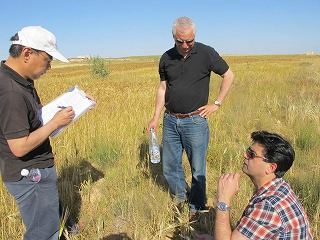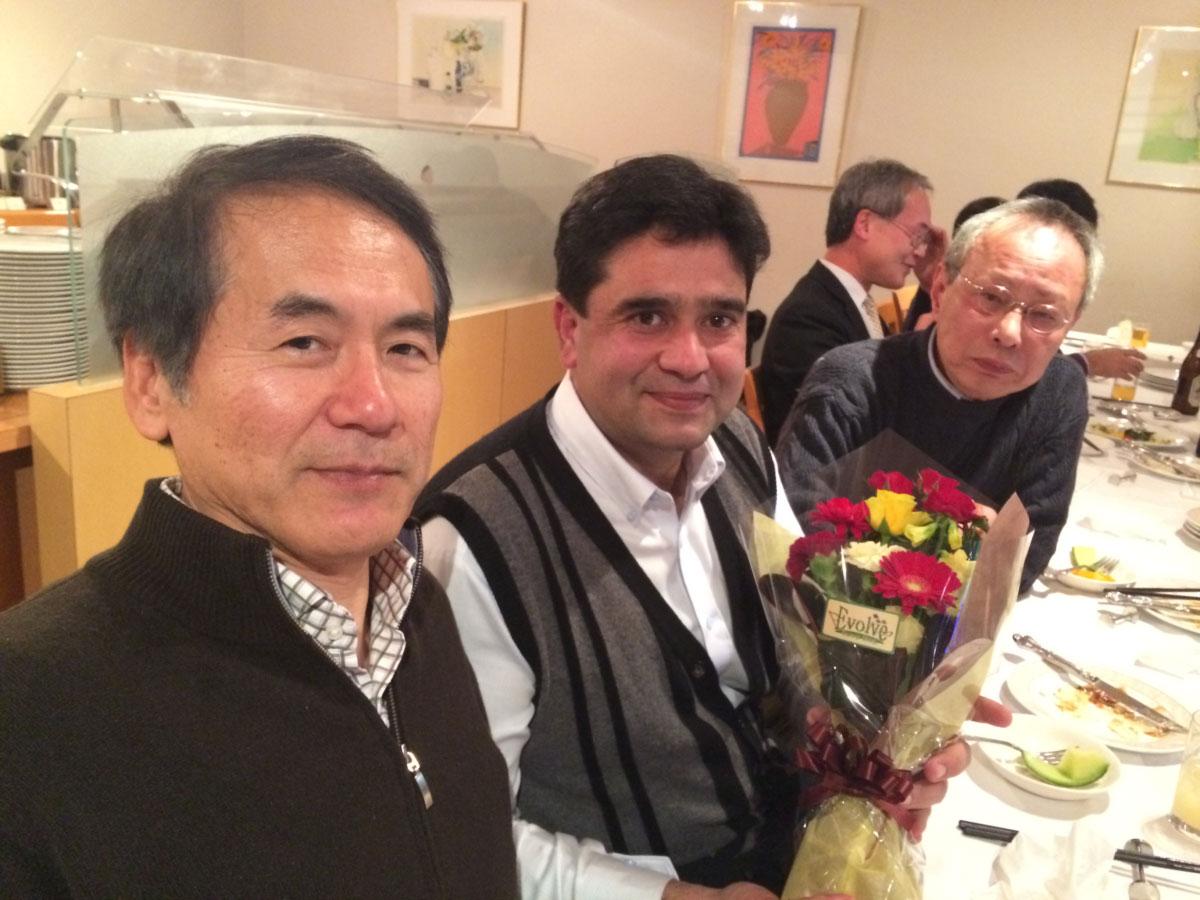Tariq Shehzadさん
2016/04
Tariq Shehzad (Pakistan)さん
PhD in Agricultural Sciences, University of Tsukuba (2009)
Assistant Research Scientist/Assistant Professor
College of Agricultural and Environmental Sciences
University of Georgia, U.S.A.
① Tell us about yourself.
My name is Tariq Shehzad and I completed my PhD at the University of Tsukuba in 2009. During PhD, I mainly worked on the development of sorghum core collection and its application to association mapping. Sorghum, Sorghum bicolor L. Moench, is currently an important crop because of its multipurpose use as well as its simple genomic structure that can be efficiently utilized in complex C4 crops. Furthermore, this diverse core collection is being utilized in different experiments of breeding and gene cloning by researchers in Japan as well as in other countries in the world.
After graduation, I continued working as a postdoc researcher in a project with my supervisor, Prof. Kazutoshi Okuno (retired), in the same laboratory working on QTL mapping for different important agronomic traits such as yield components, panicle architecture, photoperiod sensitivity, drought and salt tolerance by linkage and association analysis. I have been awarded a two-year JSPS foreign postdoctoral fellowship in 2010. As a postdoc, I worked on genetic analysis of allelopathic characteristics of sorghum. Soon after completing this fellowship, I became Assistant Professor in one of the doctoral programs of the University of Tsukuba under Global 30 (G30) called Arid Land Resources Science English course. At that time, we had 12 students enrolled working in areas of research contributing to the utilization of bio-resources in arid and semi-arid areas. Two of the students worked directly with me in the field of plant genetics and breeding. I was also responsible for the arrangements of two courses for students in this program. After working as faculty at University of Tsukuba for two and half years, I finally moved to the University of Georgia, Athens, Georgia, U.S. in January 2015. Presently I am working as non-tenured faculty at the College of Agricultural and Environmental Sciences. I am also serving as coordinator of University of Tsukuba Alumni for North America.
② Reflections on studying at University of Tsukuba, what are the merits?
Living and studying at the University of Tsukuba was the most fascinating time in my life. I lived there for almost 10 years. I started my professional career in Japan and came across several wonderful experiences that are still serving as foundation of my career. I visited several countries but Japan is exceptional. Once you live in Japan, it is not easy to adjust in any other, even more advanced, countries. The lifestyle in Japan is very pure and original, especially for people like me who come from a culture having several reservations and boundaries. I think Japan is the best place to live and study. You will find the same norms and cultural values as you have in your native country. Japanese people are very conservative and very respectful of other beliefs.
The best thing at University of Tsukuba was the presence of cooperative faculty and staff that always help students to be at their best to avoid any language constraints. As most graduate programs are research based, students are more engaged in research than taking classes. This makes it easy for their survival even if they have less chance to read and speak Japanese.

③ Your message to University of Tsukuba students.
If you are dedicated to study and research, University of Tsukuba is an excellent place to exceed your capabilities. University of Tsukuba is one the best universities in the world and if you are working hard, then no doubt you will definitely have a very bright future.

PREVIOUS
相良 浩平さん
